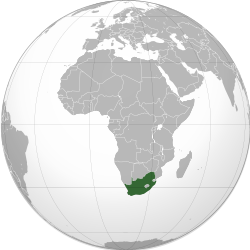This article includes a list of references, related reading, or external links, but its sources remain unclear because it lacks inline citations .(January 2026) |
Section Nine of the Constitution of South Africa guarantees equality before the law and freedom from discrimination to the people of South Africa. This equality right is the first right listed in the Bill of Rights. It prohibits both discrimination by the government and discrimination by private persons; however, it also allows for affirmative action to be taken to redress past unfair discrimination.
